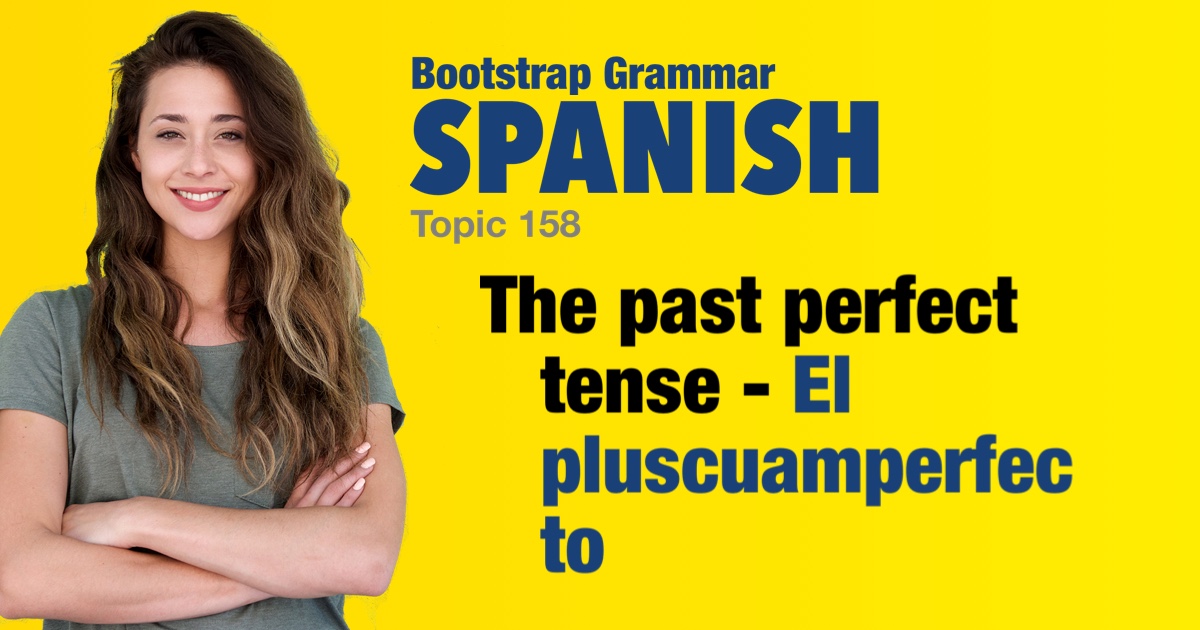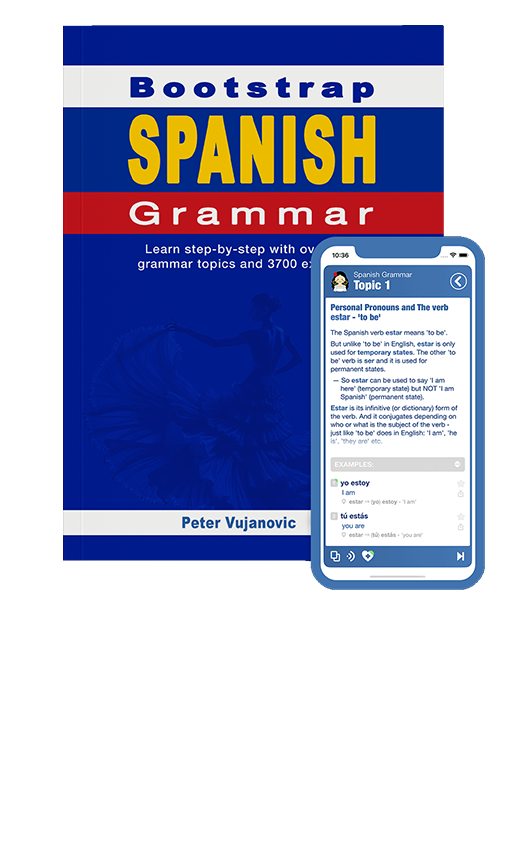Spanish grammar - The past perfect tense - El pluscuamperfecto |
|||
|
|||
The past perfect tense, or pluscuamperfecto, is used to describe actions that had occurred before another action in the past. It is formed using the imperfect tense of the auxiliary verb haber followed by the past participle of the main verb. -- For example, yo había comido means 'I had eaten.' Recall that the imperfect tense conjugations of haber are había, habías, había, habíamos, habíais and habían El Pluscuamperfecto provides context by showing that one action was completed before another action took place. |
| Examples: | |
|
Yo ya había salido cuando llamaste.
I had already left when (you) called.
|
|
|
Él ya había empezado su trabajo cuando su gerente le telefoneó.
He had already started his work when his manager telephoned.
|
|
|
Ella no había terminado sus deberes cuando su madre la llamó.
She hadn't finished her homework yet when her mother called her.
|
|
|
Cuando me desperté, María ya había salido para el trabajo.
When I woke up, Maria had already left for work.
|
|
|
Cuando llegamos, ella ya se había ido de vacaciones a Normandía.
When we arrived, she had already gone on vacation to Normandy.
|
|
|
El despertador sonó y Isabelle no había dormido nada.
The alarm clock rang and Isabelle hadn't slept a bit.
|
|
|
Me dolía el estómago porque había comido algo malo.
I had a stomach ache because I had eaten something bad.
|
|
|
Caminaba con dificultad porque se había caído.
He walked with difficulty because he had fallen.
|
|
|
No te preocupes. Ya habíamos pensado en eso.
Don't worry. We had already thought of that.
|
|
|
Él no había comido antes de hacer sus deberes.
He hadn't eaten before doing his homework.
|
|
|
Ellas hicieron las compras esta mañana. Pero yo ya lo había hecho ayer.
They (females) did the shopping this morning. But I had already done it yesterday.
|
|
|
Habíamos querido hablar contigo, pero resultó que no tuvimos tiempo.
We had wanted to talk to you but it turned out that we didn't have time.
|
|
|
Ella no se había preparado bien antes de dar su presentación.
She had not prepared well before giving her presentation.
|
|
|
¿Este vestido? Ella lo había comprado cuando estaba en Madrid.
This dress? She had bought it when she was in Madrid.
|
|
|
Cuando llegué, ellos ya habían salido.
When I arrived, they had already left.
|
|
|
¿Habías escrito la carta antes de irte?
Had (you, familiar) written the letter before leaving?
|
|
|
Ya habían cerrado la tienda cuando llegamos.
They had already closed the store when we arrived.
|
|
|
Habíamos comprado el coche antes del viaje.
We had bought the car before the trip.
|
|
|
¿Habían hablado con el profesor antes de la reunión?
Had (you all, formal) talked to the teacher before the meeting?
|
|
|
Ellas habían cocinado la cena cuando llegamos.
They (feminine) had cooked dinner when we arrived.
|
|
|
Habían estudiado francés antes de mudarse a París.
They had studied French before moving to Paris.
|
|
|
¿Habías viajado a España antes de conocer a Juan?
Had (you, familiar) traveled to Spain before meeting Juan?
|
|
|
Ellas habían preparado todo antes de la fiesta.
They (feminine) had prepared everything before the party.
|
|
 |
|




